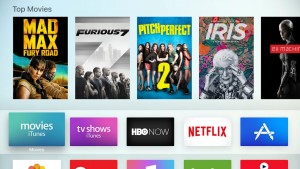Article
UK consumer rights laws now cover digital downloads | Engadget
Consumer Rights Act 2015 Could Aid Clarity on Broadband Prices | ISPReview.co.uk
From the horse’s mouth
UK Government – Department of Business, Innovation & Skills
Press Release
Consumer Rights Act 2015 (UK)
– Chapter 3 (covers digital content)
My Comments

Software delivered via app stores now under the same consumer-protection remit as physical goods
A consumer-affairs issue that often crops up when it comes to goods and services that are digitally-delivered is how customers are protected if things go awry with these goods. This is because software, books and other content are increasingly being delivered “over the wire” from the supplier to the user such as through app stores rather than as a physical package. As well, an increasing amount of computer software including games that are sold through “bricks and mortar” retail stores are being delivered as a “physical+digital” form. This is typically a box containing a CD or USB stick with a download client or a software-entitlement card with a product key number but the full installation requires you to download the software on to your computer.

.. as movies and games delivered to games consoles and set-top devices via the Internet
But a lot of jurisdictions tend to place different standards of consumer protection on the digitally-delivered goods and services compared to physically-delivered goods and services like refrigerators, computer and home-network hardware, books or Blu-Ray Discs.They seem to allow for balky downloads or for a digital-content supplier to implement digital-rights-management technologies to protect their content. Typically this has shown up as electronically-supplied goods being covered under a separate statute with lesser “teeth” while other goods are covered under the main consumer-protection statutes. This also applied to services like broadband Internet, landline and mobile telephony, and Webhosting-type services.
The UK have tackled this issue by amalgamating digitally-delivered goods and services under the same consumer-protection law as regular goods and services when they enacted the Consumer Rights Act 2015. Here, there are legal rights of remediation if the digital items came through faulty like a bug-ridden game, including situations where a feature in that program and was part of the description doesn’t work. This even encompasses situations that may come about if the host device crashed due to a buggy program; as well as assurance of access continuity if the service provider’s equipment went AWOL.
There needs to be a similar level of protection for small businesses and community organisations when it comes to the supply of technology so that these users have the same level of protection as the ordinary consumer. This is because these kind of users will purchase goods in the same manner as the ordinary consumer, including purchasing “residential-rated” goods due to the limited know-how of their staff / volunteers and their budget. As well, they don’t have continual access to legal resources in the same manner that a big business would have, so they wouldn’t be in a position to have supply contracts properly assessed. This also applies to people who are running “micro-businesses” from their home for such activities like blogging / small-time journalism, Web-site development, cleaning services and the like.
Another issue that has to be raised is supply of these goods and services across national borders, which is something that is very common with digitally-supplied goods and services. What would happen if a piece of downloaded software that was bought from an American supplier by a Briton failed or if a British software developer supplied a balky WordPress theme to an Australian blogger?
What I see of this law is for a major jurisdiction to bring the spirit of proper consumer protection normally enjoyed with physical goods to digitally-supplied goods and encompass it under one statute. Jurisdictions that work to the Westminster style of government, like most of the British Commonwealth countries, may find this legislation easier to implement with very few changes.
![10 Downing Street door by Jdforrester crop from original by Prime Minister's Office, HM Government. (2010 Official Downing Street pic.jpg) [OGL (http://www.nationalarchives.gov.uk/doc/open-government-licence/version/1/)], via Wikimedia Commons](https://homenetworking01.info/wp-content/uploads/2016/10/2010_Official_Downing_Street_pic_-_cropped_to_door_arch-259x300.jpeg)



